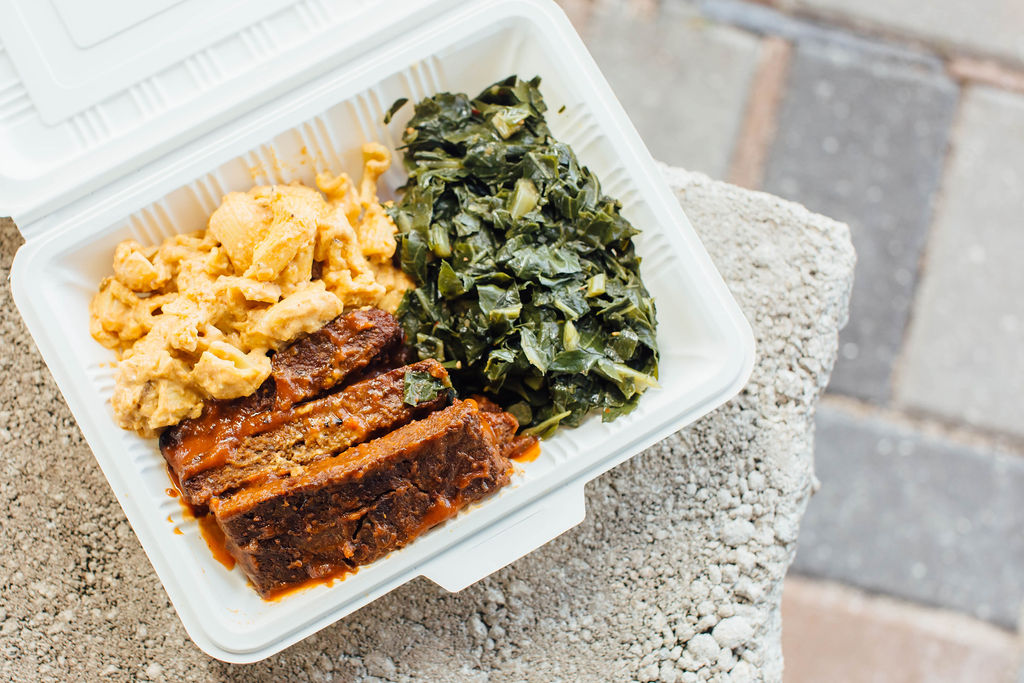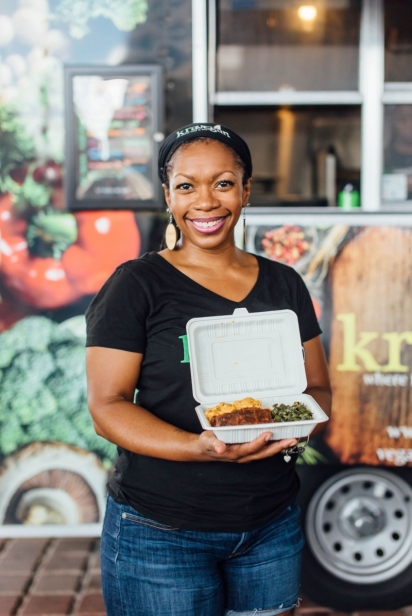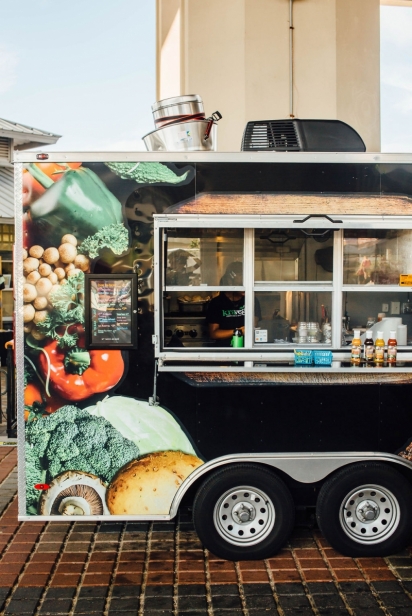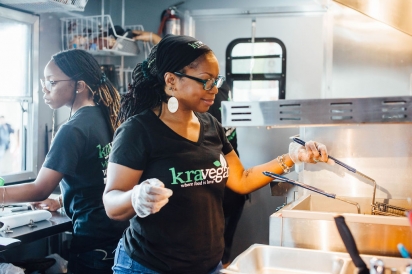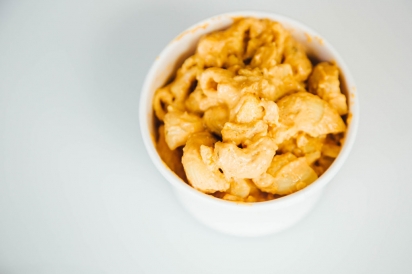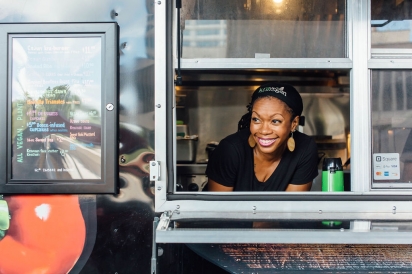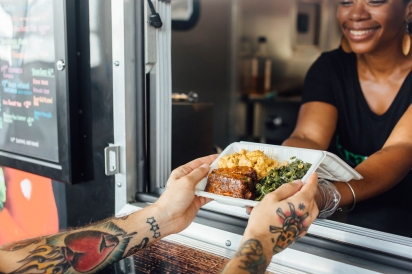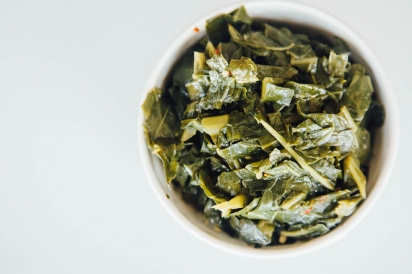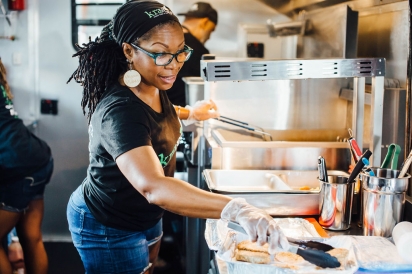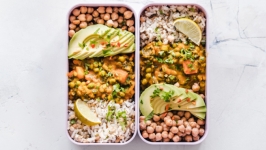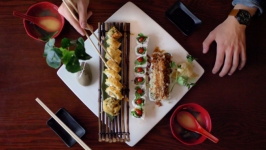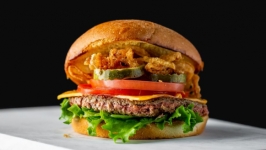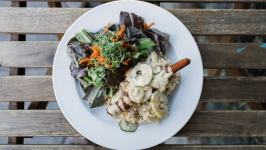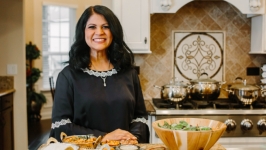Vegan Soul Food
LaTasha Kaiser has been making food from scratch since she was nine years old. As a child, she received the gift of cooking from her father. “He taught me that food is like colors. You shouldn’t be afraid to play around with flavors,” she explains. After going vegan two years ago, she began applying the same skills and techniques she learned in her family’s kitchen to create meatless versions of the foods she craved. “Her internal drive is, just because you decide to eat healthy, doesn’t mean you should miss out on flavor,” says her husband Lew, who runs the business side of their vegan food truck, KraVegan.
KraVegan’s menu is a survey of all the things LaTasha loves to eat, but adapted to a vegan diet. Although not her primary focus, soul food features prominently on her menu with popular items like meatless ribs, “moxtails,” mac-n-cheese and collard greens. In a way, what she does is a return to the origins of soul food.
It may be hard to separate our idea of soul food from meat-centric entrees like smothered pork chops, fried chicken, turkey necks and the like, but the reality is the cuisine’s origins were somewhat accidentally vegan to begin with, even if there was no word for it at the time.
Today’s soul food evolved from what American slaves in the South ate in their time – a melding of West African, European and Native American cuisines fueled by what they’d been given or grew themselves. And a relatively meatless diet was, by no means, a change of pace. African cuisine had been, and remains, fundamentally agricultural in its foundations. Visit any Ethiopian restaurant and take note of the abundance of vegan dishes on the menu.
Although animal husbandry was prevalent, it was a far less significant source of food than that which was provided through the cultivation of greens and vegetables. Staples such as rice, cowpeas, sorghum and yams were not foods native to America, but rather imported from West African countries like Senegal, Guinea, Gambia, Ghana and Nigeria.
West African cuisine began to incorporate crops from the New World, especially corn, into its culinary traditions as a result of the Columbian Exchange in the 15th and 16th centuries, long before Southern plantation owners brought slaves into the kitchen to prepare meals. In his book “Soul Food: The Surprising Story of an American Cuisine One Plate at a Time,” author Adrian Miller explains how traditional European crops failed to thrive in colonized West Africa, making it “an incubator for agricultural experimentation.” It was this style of cooking that West African slaves would bring with them to North America and the reason the differences between “Southern” cuisine and soul food are, at times, difficult to distinguish.
American slaves were rarely given good portions of meat under the subjugation of slavers. What little they could hunt, fish or procure was often at best used to season vegetables. It is only somewhat recently that meat has been incorporated into soul food cuisine, at least to the extent that it now exists.
The owners of KraVegan are not alone in their vegan-ification of soul food. A growing interest is taking root, particularly in areas outside of the South where soul food has since traveled after the Great Migration (when many African Americans moved to different parts of the country). As health concerns and ethical considerations become more widespread, the availability of vegan soul food is more prevalent, even in the South where old traditions die hard. LaTasha herself was inspired to start her business after attending a women’s conference in Atlanta and touring the established vegan food scene there.
“All my recipes are beta-tested by non-vegans because I know that if meat eaters like it, vegans will love it,” she says. “My goal is not for people to walk away and go ‘That was a great vegan meal.’ My goal is for people to walk away saying, ‘That was a great meal! What do you mean it’s vegan?!’”
Flavor and familiarity are top priorities for LaTasha. To accomplish her goal, she leans on an arsenal of savory spices like marjoram, coriander and mustard seed to bring what she considers an earthy smokiness to rival that of the missing pork or smoked turkey you might otherwise find in a typical pot of collard greens. Based on the droves of loyal customers who come back week after week wherever she parks the KraVegan truck, I’d say she’s on to something.
LaTasha has plans to open a brick and mortar restaurant one day but for the moment, you can find KraVegan at the Riverside Arts Market on Saturdays.


